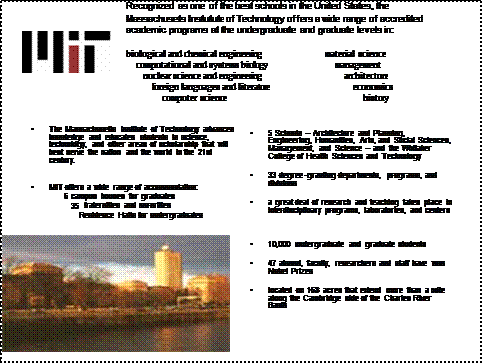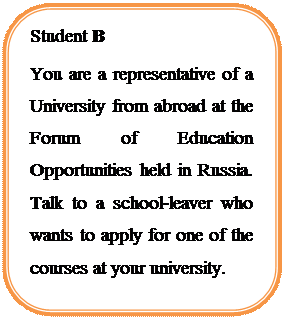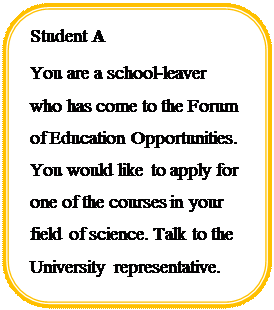
Заглавная страница Избранные статьи Случайная статья Познавательные статьи Новые добавления Обратная связь FAQ Написать работу КАТЕГОРИИ: ТОП 10 на сайте Приготовление дезинфицирующих растворов различной концентрацииТехника нижней прямой подачи мяча. Франко-прусская война (причины и последствия) Организация работы процедурного кабинета Смысловое и механическое запоминание, их место и роль в усвоении знаний Коммуникативные барьеры и пути их преодоления Обработка изделий медицинского назначения многократного применения Образцы текста публицистического стиля Четыре типа изменения баланса Задачи с ответами для Всероссийской олимпиады по праву 
Мы поможем в написании ваших работ! ЗНАЕТЕ ЛИ ВЫ?
Влияние общества на человека
Приготовление дезинфицирующих растворов различной концентрации Практические работы по географии для 6 класса Организация работы процедурного кабинета Изменения в неживой природе осенью Уборка процедурного кабинета Сольфеджио. Все правила по сольфеджио Балочные системы. Определение реакций опор и моментов защемления |
Unit 1 Making Choice can be Hard WorkСодержание книги
Поиск на нашем сайте
1. Choosing a university at which you will spend the next few years of your life is not easy. It is important to make sure that you choose the right place to study. There are so many questions you have to answer. List the factors that influenced your choice of the university, e.g.: § university location § fields of study § … § … § …
2. How did you get information about the university/faculty you study at: through University Prospectus, University Open Days, from your friends,…?
1. Look through the advertisement of the Massachusetts Institute of Technology. Take notes under these headings. § Levels of study § Fields of science § Accommodation provided § Institute structure § Number of students § Location
(Adapted from MIT Web site)
Discuss Ø If you had a chance would you choose MIT to study at? Ø What information from this advertisement would help you make up your mind?
Focus on Language 1. Read the paragraph. What do the words in bold print refer to? The MIT is dedicated to educating students in science, technology and other areas of scholarship that will best serve the nation in the 21st century. It offers a wide range of accommodation for its students.
2. Read the paragraph and highlight the words in the text that refer to the words in bold. Cambridge, US is a unique community with a strong mix of cultural and social diversity and technological innovation. Its "Squares" are rich in various international restaurants and cafes as well as unique shopping, theatres, museums, and historic sites. Located between Harvard University and MIT, Central Square is the seat of City government and is home to a rich variety of music clubs, book shops, restaurants, etc. It ’s about a 12 minute walk from Kendall Square, which is the home to MIT and the heart of Massachusetts' high tech and biotechnology industries. The main site of the MIT is located along the left bank of the Charles River. This provides a wonderful view of the Boston area. Parking in Cambridge can be expensive and hard to find so use public transportation to get to the MIT campus. The Tech shuttle and Safe Ride shuttle provide free transportation around the MIT. But the latter runs only on weekdays. (Adapted from http://www.cambridge-usa.org/)
Study the web site and Prospectus of your university or faculty. Then write an advertisement of your own for university applicants. Use MIT advertisement as an example. Present your advertisement in class using the guidelines: § Location § Levels of study § Fields of science § Accommodation provided § Institute structure § Number of students § University rank
1. Match words in A with the partner in B to make common phrases related to education.
2. Read the text about the British system of higher education. What makes it unique? First degree courses in the UK The UK has an excellent reputation for higher education and research. It offers a lot of opportunities to both national and international students at undergraduate and postgraduate level.
Degrees
The degrees vary according to the practice of each university. First degrees after leaving school are often called undergraduate. Arts, social science and pure science degrees normally last 3 years in England, Wales and Northern Ireland because they are designed to follow a very specialized school-leaving qualification. In Scotland, they take 4 years of study because Scottish students do less specialized school-leaving examination. First degree courses that include professional training take longer. Some courses in business studies, engineering, science and technology are one year longer to allow students to undertake practical training. These are known as sandwich courses and include periods of work experience in industry and commerce. Traditionally a university graduate will be awarded the degree of Bachelor of Arts, Science, Engineering, Medicine etc. Later he may continue to take graduate or postgraduate courses. There is a second higher educational qualification in the UK, known as the Higher National Diploma or HND. It lasts a year less than a degree course – either two full-time or three years as a sandwich course. HNDs are vocational (or job related), so a student will not find them in purely academic subjects as history or philosophy. They are available in, for example, science subjects, engineering, business studies, hospitality and tourism management. Teaching UK universities and colleges use a range of teaching methods: Lectures – given to large groups of students, sometimes up to 200. In Oxford popular lecturers can attract audiences from several faculties, while others may find themselves speaking to two or three loyal students, or maybe to no one at all. Seminars – discussions between one member of staff and a small group of students on a previously arranged topic, which everyone has prepared. Often, one student reads out an essay or seminar paper, then everyone joins in the discussion. Tutorials – one-to-one discussions or between a member of staff and two or three students; normally take place once a week. Students write essays for the tutor which serve the basis for the discussion and argument. At the end of the hour the students go away with a new essay title and a list of books that might be helpful in preparing for the essay. Assessment Students’ work may be assessed in several different ways. Most universities and colleges still use some form of written examination. These can last up to three hours, in which time a student has to answer three or four questions in essay form. Examinations may be held each year or may come all together at the end of the course (in which case they’re known as “finals”). Very few institutions, however, rely only on finals. Continuous assessment is an increasingly popular method of assessment, based on the marks a student receives either in all their coursework or in a number of selected essays and projects. Many first degree honours courses require students to undertake research and write a dissertation, which is an extended essay on a subject of the student’s choice. Dissertations usually replace two or more examination papers. (Adapted from http://www.universitiesuk.ac.uk/)
Comprehension check 1. Read the text more carefully and answer the questions. a) What is the first degree course title? b) What is the difference between the course of study in Scotland and the rest of the UK? c) What is a sandwich course? d) How long do the first degree courses last? e) What does HND stand for? f) How long does HND course last? g) In what way are tutorials different from seminars?
h) What is the main difficulty taking a written exam? i) What do you think the advantages of “continuous assessment” are? j) Are all students required to write an extended essay?
2. Look back in the text and find the words that match these definitions. a) the qualification obtained by students who successfully complete a university or college course - … b) a document showing that you have completed a course of study or part of your education - … c) written, spoken or practical text to see how much a student knows about the subject or what he/she can do - … d) a university course that is of a higher level than a basic course - … e) a number or letter that is given to show the standard of smb’s work or performance or is given to smb for answering smth correctly - … f) a period of study at a college or university that leads to an exam or a qualification - … g) the process of learning the skills that you need to do a job - … h) an area of knowledge studied in a school, college, etc. - … i) the fact of passing an exam, completing a course of training or reaching the standard necessary to do a job or take part in a competition - … j) the last exam taken by university students at the end of their final year - …
Focus on Language 1. Look at the entry for the work book in the Lingvo Dictionary. It will help you to work with dictionaries more effectively.
The part of speech (n. = noun, v. = verb)
2. Identify what parts of speech the words in bold are. § Pull down the blinds before you light the lamp. § This bright light blinds my eyes. 3. These words have more than one meaning. Use a dictionary to find out which part of speech they are and what meanings they have. Write two sentences to illustrate different meanings of every word.
1.
2. Match the words and phrases in A with the verbs they often go with in B. Some verbs are used more than once.
3. Listen to James Couzin, Education Consultant at “Universities UK” speaking on the new modular schemes. Complete the notes.
Discuss Ø Would you like to study abroad? Ø What degrees are awarded in Russian universities? Ø How does the pattern of learning in the UK differ from that in Russia? Ø How is the student’s progress assessed in the UK and in Russia? Ø How does the British system of higher education differ from the system of education in our country? Ø Which elements of British system of higher education would you introduce in your university? Why?
Visit the websites of the world famous universities and take notes on § degrees that they award in your field of science § courses available – traditional, modular, sandwich, etc. § admission requirements § types of classes § methods of assessment Report back in class.
1. Application forms mostly ask for information rather than ask questions. Match a line in A with a question in B.
2. Fill in the application form for admission. Write in block capitals. Put N/A if the information is not applicable.
In education as well as in many other spheres of our life there are a great number of abbreviations. Read and remember the abbreviations to do with the degree titles, e.g. BS stands for Bachelor of Science. Do all of them have Russian equivalents?
2. What degrees are awarded in Russian universities?
|
|||||||||||||||||||||||||||||||||||||||||||||||||||||||||||||||||||||||||||||||||||||||||||||||||||||||||||||||||||||||||||||||||||||||||||||||||||||||||||||||||||||||||||||||||||||||||||||||||||||||||||||||||||||||||||||||||||||||||||||||||||||||||||||||||||||||||||||||||||||||||||||||||||||||||||||||||||||||||||||
|
Последнее изменение этой страницы: 2016-09-18; просмотров: 615; Нарушение авторского права страницы; Мы поможем в написании вашей работы! infopedia.su Все материалы представленные на сайте исключительно с целью ознакомления читателями и не преследуют коммерческих целей или нарушение авторских прав. Обратная связь - 3.17.131.133 (0.01 с.) |


 course of
course of


 book [ buk ] n. 1. книга; 2. литературное произведение;
book [ buk ] n. 1. книга; 2. литературное произведение;


 v. 1. записывать, регистрировать; 2. заносить в список; 3. заказывать, бронировать места, продавать билеты (обычно заранее); приглашать, договариваться
v. 1. записывать, регистрировать; 2. заносить в список; 3. заказывать, бронировать места, продавать билеты (обычно заранее); приглашать, договариваться
 adj. книжный, ~ learning – теоретические знания
adj. книжный, ~ learning – теоретические знания

 Before you listen check the meaning of these words and phrases with a partner or in a dictionary:
Before you listen check the meaning of these words and phrases with a partner or in a dictionary:
























